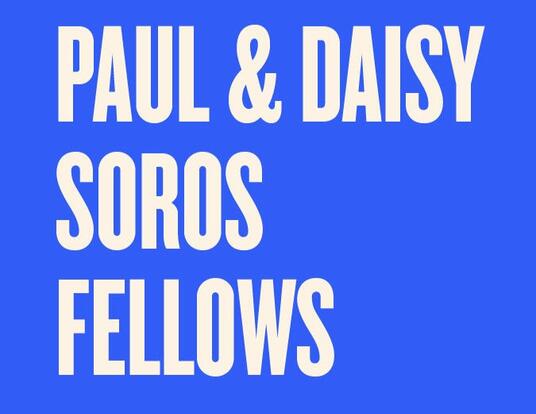Notes From a Writer's Desk: Summer Writing & Research Plans

Summer is a time to exhale and refresh our minds before evaluating and resetting our goals. After the hustle and bustle of the academic year, what kinds of projects might you tackle over the summer and how might you move forward with them? Your answer may depend on what stage you are at in your career, along with a careful consideration of both your short- and long-term goals and deadlines. To give you a sense of our own processes, we wanted to share some of our projects below, which may be helpful as you set out to work on yours.
Something that I have long struggled with is keeping up with more than one writing project at a time. I usually have several projects going at once, but I find that to make meaningful progress, I usually have to focus my intellectual energy on one for a chunk of time before returning to another. This summer, one of my main goals is to crack this tendency and work consistently on two different but related writing projects. The first is an article based in part on a dissertation chapter and in part on a conference presentation from last spring. One way I plan to ensure meaningful and incremental progress on this article is by co-facilitating an article writing group with Josephine Reece this summer, which, like last summer’s group, will use Wendy Belcher’s workbook, Writing Your Journal Article in Twelve Weeks. My second major writing project is to have my book proposal completed by the end of the summer. I’ve been very slowly working on this over the last year or so, and feel that some sustained attention will be crucial to getting this document completed. In addition to using Laura Portwood-Stacer’s guide, The Book Proposal Book, I am part of a weekly writing and publishing group through the American Musicological Society that will help to keep me accountable on my progress. If it’s not obvious already, I find working/accountability groups as well as guides and workbooks helpful to me in staying true to my writing goals. Maybe you will, too!
–Samantha Jones
My primary goal for the summer is to complete new analyses for a manuscript revision. The work to be revised started as a collaboration five years ago. The manuscript has since gone through two rounds of peer review, then remained in stasis since late 2022 for a confluence of reasons: the result was modest and thus required more detailed analyses, my collaborator moved to a new job and can no longer contribute, and I had a different main project (now completed). In the next two months, I expect to have the time to finish analyses for the revision. My stretch goal is to finish the writing, although it will be challenging given other ongoing projects.
My natural tendency in research is to explore new ideas and iron out details. To mitigate these banes to completion, I have devised two schemes over the years. My first trick is to tie a deadline to a project that I want to move forward (but that I may not otherwise do), usually by aiming for a conference abstract. A non-negotiable deadline, combined with the relatively low stakes of an abstract, creates just the right motivation for me to wrap things up. Because writing an abstract is still a compound goal, my second tool is to break down project steps and assign each to specific dates on a timeline (a Gantt chart). As a bonus, a timeline helps me prioritize concurrent projects (and deters me from exploring constantly at the expense of completing something).
–Will Xiao
For me, summer presents a great opportunity to revisit old projects and figure out what to do with them, whether that means scrapping them, borrowing pieces for other projects, or resuscitating the original idea. To this end, the first thing I always do is dredge up all my scattered notes and assess them in tandem. If you’re anything like I am, then at this point you realize you’ve arrived at countless versions of the same basic intuition. Each time, you scrambled to jot down a flash of insight in the few minutes that you had between other responsibilities, but the recurrences are proof alone that you have something real. This year, I’ve decided to unearth one such abandoned article, cast aside practically mid-sentence but still calling out to me from the depths of my digital archive. It began as a well-received conference paper, a tidy, 20-minute talk carved out of pages of research. But how to expand it back out again after so much time and with so many possible directions strewn among my notes? Once again, starting with my files is key: What do I actually have and what am I missing? This overview will help me to reorganize my early sketches into a clearer vision, having given myself more than enough critical distance to discard without remorse. Only then will I begin to piece together a new draft, not by copying and pasting from hither and thither, but by rewriting from the ground up. While these initial steps may be time-consuming, such attentive work in the early stages goes a long way in the end, allowing us to weave the multicolored threads (to borrow a phrase from my protagonist, Petrarch) into a final product that is both structurally sound and aesthetically pleasing.
–Christopher Brown
My goal for this summer is to send out an article by the beginning of August! I've had this article percolating for a while (it started as part of a dissertation chapter), but I needed more time to decide how I wanted to frame it. One of my biggest writing challenges is seeing too many interesting possibilities and potential directions for my work, which makes it difficult when the time comes to narrow in on one particular thread. After stepping away from this draft for a few months, I now feel ready to tackle it this summer and make some of those difficult decisions.
To help keep myself accountable, I’ll be working on my article in the article writing group I am co-facilitating at the FWC this summer. Having the structure of Wendy Belcher’s 12-week article writing plan will help me stay focused on the big-picture revision tasks, and working together with others will keep me motivated and consistent in my writing practice. Hearing about other people’s research topics and sharing my own is energizing and helps me to think about my work in new ways or unravel problems more quickly. I’m looking forward to some focused writing time with this writing community, working outdoors, and making iced coffee!
–Josephine Reece
Ready to book an appointment with FWC staff? Access the FWC intake form.
Get the Latest Updates
Join Our Newsletter
Subscribe to Colloquy Podcast
Simplecast Stitcher





